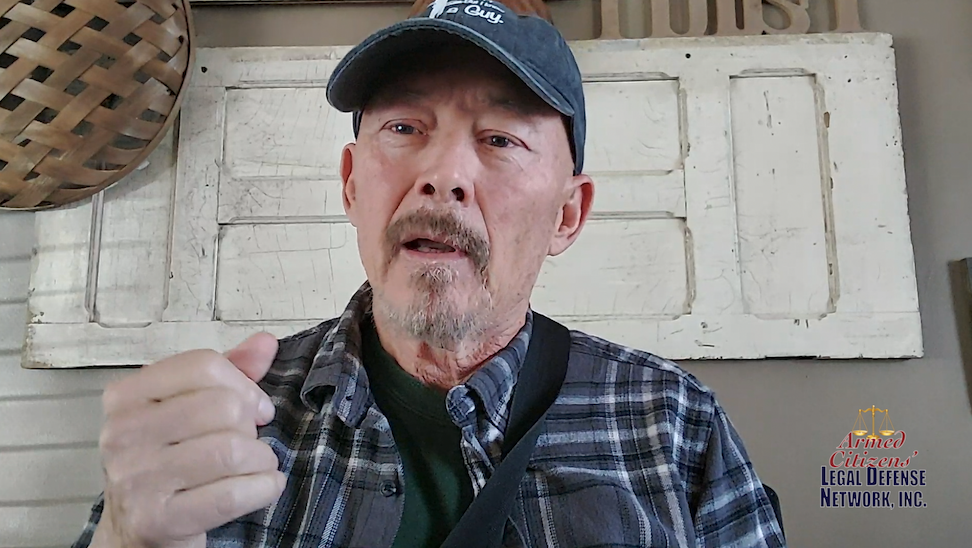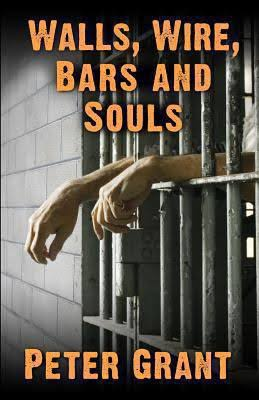Including ...Adapting Self Defense to Wheelchair Use • President’s Message • Attorney Question • Book Review • Editor's Notebook • About this Journal
Get eJournal PDF: click here
Adapting Self Defense to Wheelchair Use
An Interview with Clyde Caceres
Interview by Gila Hayes
Wars in the Middle East increased the numbers of amputees and people with varying degrees of paralysis. As a result, there’s been more blogging and articles about wheelchair gun carry in recent years. Forgotten, I fear, were the more senior people who lost mobility or were paralyzed after an illness or accident. In February, I was privileged to speak at length with lifetime martial artist, accomplished shooter, instructor, and longtime contributor to the self defense and law enforcement industries, Clyde Caceres. I learned a lot and want to share that conversation with members. Enjoy a longer video version at https://youtu.be/MKeUOY-8vFw.
eJournal: Can you give us a brief bio highlighting your martial arts involvement and the accomplishments of your work in the gun world with an eye towards exploring the foundations of your self-defense principles?
Caceres: It’s been something I’ve been doing for decades and decades. I used to study martial arts very intensively and opened my own school. When more and more law enforcement people came to train, I found myself working more with retention and disarming and skills like that. Eventually, that led me to join a police force part-time, which opened doors for me in the firearms world to work with people like you and your husband, to be able to become, for instance, a Glock law enforcement firearms instructor and a whole lot of other things that I was able to pursue.
President’s Message

by Marty Hayes, J.D.
It was the late, great Jeff Cooper, founder of Gunsite Academy, who coined the phrase “Problem Two.” He was referring to the fact that in any self-defense confrontation/incident, there were two problems one needed to survive. Problem One was surviving the life-threatening event, and Problem Two referred to surviving the legal aftermath of using force in self defense.
I first considered this dual problem back in the late 1980s when I first started teaching private citizens how to use handguns for self defense.
Attorney Question of the Month

In 2023, three Network members defended themselves, called on the Network, and we paid attorneys to represent them. Two had selected attorneys in advance; for one, we contacted several attorneys before finding a lawyer to provide representation.
The experiences put the spotlight on reasons armed citizens prefer to meet with an attorney and work out in advance how to contact them for help after self defense.
Book Review
Walls, Wires, Bars and Souls
By Peter Grant
Paperback 294 pages, $13.24 or Kindle eBook for $3.99
ISBN-13 978-0615884394
Publisher: Fynbos Press, Sept. 2013
Reviewed by Gila Hayes
Who better to help ordinary, good citizens understand criminals than a prison chaplain? I was interested when I ran across a book by Peter Grant that promised to “try to give an accurate and unvarnished picture of what it’s like to work in a high-security penitentiary, surrounded by some of the most violent and dangerous criminals in the United States.” After injury forced the author into medical retirement, he expressed his need to still contribute to public safety by writing Walls, Wire, Bars and Souls. In it, he notes that in spite of studies that try to paint profiles of incarcerated criminals, “how an inmate’s mind works” is hard for most to understand.
Editor’s Notebook
Coming to a City Near You
by Gila Hayes
Between the upcoming general election, strong feelings about politics, race, abortion, support for Israel, Palestine or Ukraine, or any of the other emotional topics ranging from economics to the environment, spring will bring with it a resurgence of demonstrations and rallies. Before grabbing your placard and heading down to the public square, ask yourself these questions:
Is attending worth my life?
Does a demonstration really influence public opinion?
Can I wield greater influence in some other way?
Memories are fading of the lawless summer months of 2020 that put the spotlight on violent protests. Now, as people want to go back into the streets, some deny the risk that others who hold opposing opinions may decide to fight them.
About this Journal

The eJournal of the Armed Citizens’ Legal Defense Network, Inc. is published monthly on the Network’s website at http://armedcitizensnetwork.org/our-journal. Content is copyrighted by the Armed Citizens’ Legal Defense Network, Inc.
Do not mistake information presented in this online publication for legal advice; it is not. The Network strives to assure that information published in this journal is both accurate and useful. Reader, it is your responsibility to consult your own attorney to receive professional assurance that this information and your interpretation or understanding of it is accurate, complete and appropriate with respect to your particular situation.

